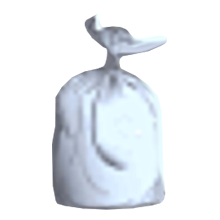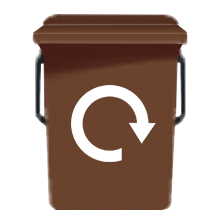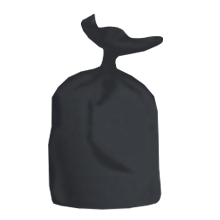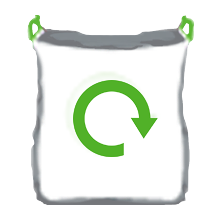Why are vaccines important?
- Vaccines teach your immune system how to protect you from diseases. It's much safer for your immune system to learn this through vaccination than by catching the diseases and attempting to treat them.
- Vaccines can reduce or even eradicate some diseases, if enough people are vaccinated. Since vaccines were introduced, diseases like smallpox and polio, which used to kill or disable millions of people, are gone from the UK. The long term response to the pandemic requires a safe and effective vaccine to be available for all who need it. It's a way to keep friends, family and our wider community safe.
- Vaccines will be delivered in two doses. The interval between a first and second dose of vaccination is eight weeks for those aged 18 and over, irrespective of which vaccine is administered. The interval between a first and second dose of vaccination is 12 weeks for those aged 5 to 17. The interval between the second and third dose (for immunocompromised patients only) is eight weeks. The interval between the second dose (or third dose for immunocompromised patients) and the booster dose is three months.
Which vaccine am I going to get?
- You will be offered a vaccine which has been approved by the MHRA and HSC as safe and effective and recommended by the JCVI for persons of your age or risk group.
Is it a live vaccine?
- None of the vaccines in use in the Bailiwick are live vaccines. They are therefore suitable to use in those who are immunosuppressed, although the response may be sub-optimal and other measures to reduce risk will need to continue to be observed.
Where can I find out how the vaccine will affect allergies?
- If you have concerns about allergies and the vaccine, please visit: COVID-19 Vaccinations and Allergies FAQ | Allergy UK | National Charity
What's in the vaccines? Will they have any ingredients which are unsuitable for religious groups, vegans, those with allergies for example?
- Patient leaflets explaining the different vaccines and ingredients have been made available here so people can make a informed decisions.
What should I expect after my COVID-19 vaccination?
- More information about what to expect after your COVID-19 vaccination is available here.
What happens if I experience side effects/ adverse or unexpected events, how do I report it?
- Vaccines are very safe. As with all medicines, side effects can occur after getting a vaccine. However, these are usually very minor and of short duration, such as a sore arm or a mild fever. More serious side effects are possible, but extremely rare. Tests have been done in thousands of adults to ensure the vaccine is safe.
- At the point of vaccination, you will receive information about how to report any adverse events, reactions or side effects. You will also be given details of the yellow card system and the name and batch number of the vaccine administered. Any adverse side effects can be reported here.
- It's essential that any events are reported and investigated. The safety of patients/ recipients is paramount.
Does the vaccine mean I won't be able to transmit the virus?
- The COVID-19 vaccine is designed to reduce morbidity (severe disease) and mortality (death). It will also protect our health and care systems in the Bailiwick. It will be some time before more detail regarding how the vaccine reduces the transmission of the virus. For this reason it is important that the most vulnerable in our community receive the vaccine if they can.
If someone is extremely vulnerable to COVID-19 (previously advised to shield), can they stop protecting themselves once they have been vaccinated?
- Many individuals are clinically extremely vulnerable to COVID-19, and were previously advised to shield, because their immune system is suppressed by disease or treatment they are receiving. This means they cannot fight infection well, it also means they do not respond well to vaccines. It's important that they and everyone else continue to follow official and clinical advice. Their adult household contacts and carers should also be vaccinated.
I've had COVID already/ tested positive for antibodies do I need to be vaccinated?
- You should get vaccinated. While having had the virus may give you some immunity, only being fully vaccinated with your first, second and booster dose, if eligible, can offer you the best protection from the virus.
I have questions about the vaccine liability - where do I find out more?
- The vaccine liability information is all on: Patient Information under the drop down "Vaccine Liability".
I received a AstraZeneca vaccination from batch numbers - 4120Z001, 4120Z002, and 4120Z003
- We issued two media releases about this here:
- 14 July 2021 - No Covishield vaccines administered in the UK
- 2 July 2021 - EU recognition of Covishield Vaccination
- We understand that a number of EU countries have already confirmed that they will accept vaccination-status documents which include vaccines from the 3 batches identified. These include: Austria, Germany, Slovenia, Greece, the Republic of Ireland, Spain, Iceland, Switzerland, Malta and France*.
- *Last updated 22 July 2021.
Is the Johnson & Johnson's Janssen COVID-19 Vaccine accepted in the Travel Tracker?
- Yes. For more details about accepted vaccine certificates (vaccine passports) please go to COVID-19 Status Certificates (Vaccine Passports) - States of Guernsey (gov.gg)
Why do we need to wait until two weeks after the second dose before being allowed to travel freely?
- It takes around 2 weeks for your body to build up immunity after you receive the second dose of your vaccine, therefore offering the best protection.
How do you calculate the 14 days since the second dose of vaccine?
- The day you receive your second dose of vaccine is considered to be day 1. You are fully vaccinated 14 days after you have received your second dose. We release your COVID Status Certification for printing on day 12 - so that you receive it on day 14. For example, if you received your second dose on 1 July 2021, you are fully vaccinated on 14 July 2021.
I was part of a vaccine trial - How do I prove my vaccine status?
- An exemption applies to individuals who participated in vaccine trials and who may not have been administered with the vaccinations in the usual route but are still in receipt of suitable protection. This again would need to be confirmed via official confirmation from Public Health prior to arrival.
My name is different on my vaccine certificate compared to other official documents, will this cause an issue?
- It is common for people to have different names on official documentation, for reasons such as being recently married or for professional use. In such cases you will likely have evidence that explains the difference, for example a marriage certificate. Please bring this with you when travelling.
Can I laminate my COVID Status Certificate?
- The certificate confirming your COVID-19 vaccinations contains a number of security features. If you laminate the certificate it will be more difficult to prove that this is a genuine certificate.
- Please do not laminate it.
I received two doses of vaccine through the NHS. Will my vaccine information on the NHS App be downloadable on to the Travel Tracker?
- The NHS App allows you to view your COVID status as follows:
- Select 'check your COVID-19 vaccine record' - this will provide you with details of the type, batch number and date of vaccinations. This information will need to be manually added to your Travel Tracker account.
- Select 'share your COVID-19 status' - which will enable you to download a PDF copy. This PDF copy should be uploaded as a document to your Travel Tracker account as final verification of your vaccination status.
I am coming home to Guernsey but my certificate has been sent to my Bailiwick address. What should I do?
- Please email VCC@gov.gg and request your unique 13-digit reference number (this starts with GGY). Once you have this number you can add this to your details in Travel Tracker and it will import your vaccine information when you are making your travel arrangements.
I was vaccinated in Guernsey but I haven't received my certificate, who should I contact?
- Certificates will be posted 12 days after your second dose in order that you receive the certificate by day 14.
- If you are travelling imminently and haven't received your certificate please call 01481 220006. We require 72 hours notice in order to ensure you receive the certificate.
GOV.GG
More Information
 Mainly cloudy with a small chance of a light shower, sunny spells developing.High12°CLow6°C
Mainly cloudy with a small chance of a light shower, sunny spells developing.High12°CLow6°C
5 day forecastTide timetables
The official website for the States of Guernsey
Today
St Peter Port & St Sampson
Blue Bag

Clear Bag

Food Waste

Black Bag

Glass Bag

All Other Parishes
Blue Bag

Clear Bag

Food Waste

Black Bag

Glass Bag

 Mainly cloudy with a small chance of a light shower, sunny spells developing.
Mainly cloudy with a small chance of a light shower, sunny spells developing.WindSoutheast or variable light F2.
5 day forecastTide timetables







